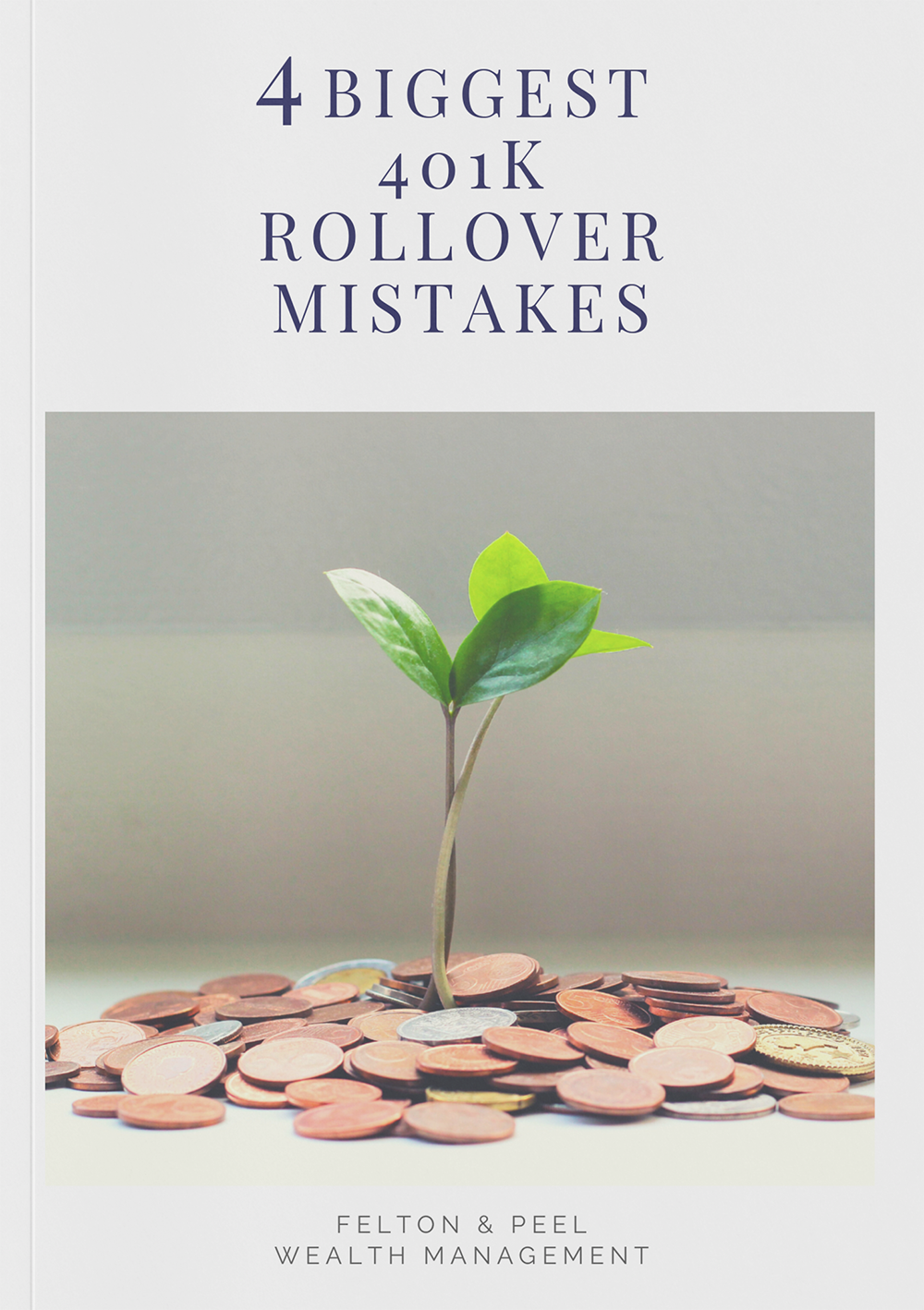
5 Epic Retirement Fails to Understand and Avoid
Retirement can be a polarizing topic. Some savers feel a thrill when they think of it—they’re already imagining themselves enjoying a Mai Tai in Bora Bora. Others, though, are filled with dread and uncertainty. And some avoid the subject altogether.
No matter where you fall on this spectrum, chances are you still want (and even need) to retire one day—and depending on where you are in your life, that day might be right around the corner. In fact, more people are retiring now than ever before. Between 2024 and 2027, more than 11,200 Americans per day will turn 65 years old, our nationally recognized retirement age. That adds up to a total of 4.1 million Americans per year.
Even if you have what you perceive to be a foolproof retirement plan, there are, unfortunately, a few common traps that can be easy to fall into. And the later you are in the game, the more critical agile retirement planning becomes.
That’s why we’ve unpacked five ways retirement plans—even the soundest ones—commonly fail. (So you don’t have to learn the hard way.)
1. Taking Your Social Security Benefits Too Early
Many Americans assume Social Security will be one of their primary income sources during retirement. But in spite of how well the program is known, plenty of people don’t fully understand how the benefits work—and the importance of correct timing in taking them.
Historically, 65 has been the birthday with which most Americans associate retirement—including claiming Social Security benefits. But soon-to-be retirees may become confused when they see they could also start taking their benefits at ages 62, 66, 67, or 70. The earlier the better, right? Well, maybe—but the decision to start taking benefits at 62 could come with considerable financial consequences.
That’s because claiming Social Security early before your full retirement age (FRA)—usually at or between the ages 66 and 67—will permanently reduce your benefits, lowering your monthly payouts for the rest of your life. Furthermore, if you claim Social Security while you’re still working, you may also temporarily reduce your benefits on top of this permanent reduction. (The specifics depend on your income and how much longer you have until you reach your FRA.)
On the other side of the scale, those who wait until age 70 to claim their Social Security benefits will receive the highest payouts possible.
For perspective, consider a hypothetical retiree whose Social Security checks would be $1,339 per month if they started taking them at age 62—or $2,395 per month if they start taking them at 70. If they claimed Social Security early, that person’s total benefit would be only $353,500 compared to the $402,360 they could collect if they decided to wait—a difference of almost $50,000.
In short: When it comes to taking Social Security benefits, oftentimes it pays to wait!
2. Selling Investments During Market Downturns
Retirement isn’t just a nice idea—for most people, it’s inevitable. At some point, you’ll likely become less able (not to mention less willing!) to spend your time earning income—and your retirement assets will become the lion’s share of your cash flow.
That means you want that nest egg to be solid. And dipping into your account at the wrong time can be exponentially detrimental.
Why? Because of the sequence of returns risk—the risk that your retirement assets will prematurely dwindle due to withdrawals taken at the beginning of your retirement during or after your portfolio experienced significant losses.
Selling your investments prematurely not only exhausts the principal balance of your retirement asset—i.e., shrinks your nest egg—but also thwarts the rate of return and the compound interest you’d otherwise have seen—i.e., gives your nest egg less opportunity to grow! Since those closer to retirement age are less likely to make contributions that can make up for such withdrawals, the lost returns can quickly become insurmountable, scrambling your chances of enjoying a successful retirement.
3. Spending Too Much on Housing Costs
Homeownership is one of the pillars of the American dream. Not only does owning property provide you and your family with stability, but chances are that property will appreciate over time, contributing to the accumulation of generational wealth.
But even with the known benefits of owning a home, high housing costs in retirement can easily poke a hole in your retirement plan, causing a slow leak that can flood your chances of a successful retirement.
Rising home prices mean higher mortgage payments, and property tax increases soon follow. Many retired Americans find that their fixed income may not be able to keep up with these bloated expenses—even if they’ve paid off their mortgage. In a high-property-tax state, taxes alone might cost more than the mortgage payment would elsewhere.
That’s before considering utility bills, HOA fees, insurance premiums and home maintenance costs, many of which can’t be entirely eliminated. So keep your housing costs in mind while preparing for retirement—and consider finding a modest way to make your American dream come (and stay) true.
4. Maintaining a Credit Card Balance
Part of the personal finance journey is learning to distinguish between good debt and bad debt. Good debt, like a (reasonable) mortgage, student loans, and some business loans, trades temporary debt for the increased chance of future earnings. Bad debt is just… debt. And credit cards are one of the biggest culprits.
Let’s assume you have $25,000 in credit card debt with a 23% APR. That means your minimum monthly payment would be around $730, and it would take you nearly 37 years to pay off. That’s the equivalent of a $136,000 mortgage on a property assuming a 5% interest rate—and far more than you would have spent buying whatever you swiped those cards for with cash instead.
What’s worse, you may have whittled away that $25,000 on forgettable and unnecessary purchases—and now, your fixed income may not be able to keep up with the payment along with living expenses. That could cause you to run your credit card bill up even higher—a true financial fiasco no matter your age, but especially in retirement.
Take this advice to the bank: Paying down high-interest credit card debt is always a good idea.
5. Being Too Traditional
As we can see, creating a safe and sound retirement plan, including getting ahead of pitfalls, is crucial to ensuring your golden years stay gold. But on the other hand, being too traditional during your retirement years could also strip your plan of flexibility and resilience.
For instance, if you come upon hard financial times during your retirement, a lesser-known tactic—like withdrawing money from your cash-value life insurance policy or taking out a reverse mortgage—may be the key you need to unlock the door to financial ease. But these creative money moves aren’t always well advertised, and some retirees may simply not know they’re available.
Despite their so-so reputation, reverse mortgages can truly help those over age 62 who have substantial equity in their homes. It allows them to convert a portion of their equity into cash, all without having to sell their home. No monthly mortgage payments are due, ownership doesn’t change hands, and the loan doesn’t have to be repaid until the home is no longer the primary residence—which could mean until after you and your spouse pass away.
Pulling money from your life insurance policy can be equally advantageous, especially since the cash value on permanent policies grow tax-deferred and withdraw tax-free.
All in all, the journey toward financial security in retirement is multifaceted and ever-evolving. Even when we’re sure we’ve made all of the right moves during our working years, one or two bad decisions—or unexpected life circumstances outside of our control—can send our retirement plan into a frenzy.
Working with a financial advisor can help you make the tough decisions that maximize your chances of preserving (and even growing) your wealth during these precious years when you’re focused on spending time with loved ones. We’re here to help—and your first consultation is free.







